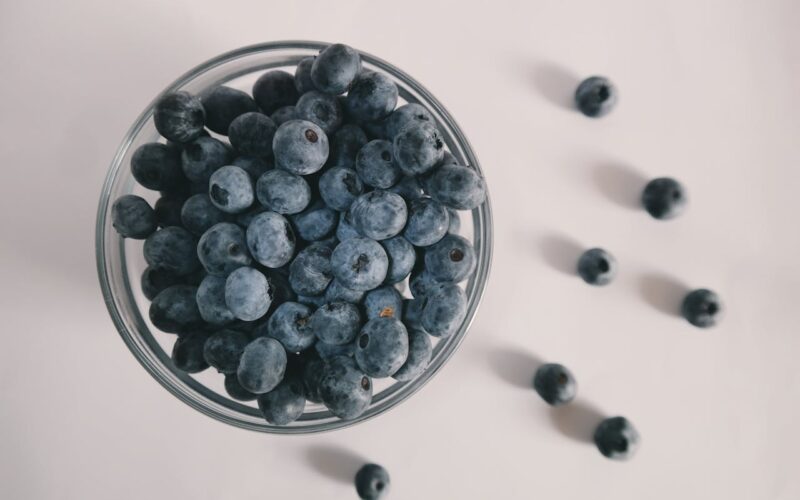Imagine a group of natural compounds so powerful that they can not only boost your health but also play a critical role in maintaining a healthy gut. These compounds are called polyphenols, and they are found abundantly in the plant-based foods we eat. In this article, we’ll explore what polyphenols are, how they benefit your gut health, and which delicious foods you can eat to increase your polyphenol intake.
What are Polyphenols?
Polyphenols are a diverse group of naturally occurring compounds found in plants, primarily responsible for protecting plants against ultraviolet radiation and pathogens. In humans, these compounds are known for their antioxidant properties, helping to combat oxidative stress in the body. There are over 500 unique polyphenols, which can be classified into several categories, including flavonoids, phenolic acids, polyphenolic amides, and others. Each type not only adds to the vibrant colors and flavors of foods but also contributes to various health benefits.
The Connection Between Polyphenols and Gut Health
Maintaining a healthy gut is crucial for overall health, influencing everything from our immune system to our mood. The gut is not just about digestion; it’s a complex ecosystem involving a vast array of microbes that help process food, produce vitamins, and protect against pathogens. This is where polyphenols come into play.
Polyphenols can enhance gut health through several mechanisms. Firstly, their antioxidant properties help reduce oxidative stress in the gut, which is crucial for reducing inflammation and protecting gut cells from damage. Additionally, polyphenols have anti-inflammatory effects that can help manage gut diseases such as inflammatory bowel disease (IBD).
Perhaps most importantly, polyphenols can modulate the gut microbiota, the community of microorganisms in our intestines. They do this by promoting the growth of beneficial bacteria and inhibiting harmful ones. This prebiotic-like effect helps to maintain a balanced gut flora, essential for good digestion and overall health.
Sources of Polyphenols
Polyphenols are abundant in a variety of foods, many of which are easy to incorporate into your daily diet. Here’s a look at some of the best sources:
Fruits
- Berries: Strawberries, raspberries, blackberries, and blueberries are not only delicious but also among the richest sources of polyphenols.
- Apples: With the saying “an apple a day keeps the doctor away,” it’s no surprise that apples are beneficial, thanks to their high polyphenol content.
Vegetables
- Spinach: This leafy green is not only rich in iron and vitamins but also polyphenols.
- Onions: Often used as a flavor base in many dishes, onions provide a good dose of polyphenols.
Nuts and Seeds
- Almonds: These nuts are not just a good source of healthy fats and protein but also contain significant polyphenols.
- Flaxseeds: These seeds are a great addition to any diet, packed with omega-3 fatty acids and polyphenols.
Beverages
- Tea: Both green and black tea are excellent sources of polyphenols, known for their numerous health benefits.
- Coffee: For many, a morning cup of coffee is a must-have, and luckily, it’s also a good source of polyphenols.
- Red Wine: Moderation is key, but red wine offers polyphenols that contribute to heart health.
Including these foods in your diet can help you enhance your polyphenol intake. However, the way you prepare and consume these foods can also impact their polyphenol levels.
Practical Tips for Enhancing Polyphenol Intake
To maximize the polyphenol content from your food, consider the following tips:
- Choose fresh and whole foods: Processed foods often lose polyphenols, so opt for fresh, whole foods whenever possible.
- Avoid overcooking: Overcooking can destroy polyphenols, so aim for lighter cooking methods such as steaming or sautéing.
- Pair wisely: Combining certain foods can help increase the absorption of polyphenols. For example, adding a source of vitamin C to a meal can enhance iron absorption from plant sources.
By integrating these strategies into your daily routine, you can significantly improve your polyphenol intake, supporting better gut health and overall well-being.
Embrace the Power of Polyphenols for Optimal Gut Health
Polyphenols are not just ordinary compounds; they are powerhouses of health benefits, especially for your gut. By understanding what polyphenols are and how they function, you’re equipped to make informed dietary choices that significantly enhance your well-being.
Incorporating polyphenol-rich foods into your diet isn’t just about adding new ingredients; it’s about transforming your health outlook. These natural compounds support the balance and diversity of your gut microbiome, which is crucial for everything from digestion to immunity and even mental health. The anti-inflammatory and antioxidant properties of polyphenols can protect your gut cells from damage and reduce the risk of chronic diseases.
Starting to make these changes can be as simple as opting for a cup of green tea instead of a soda, or choosing a handful of berries for a snack over processed foods. Each small choice adds up, contributing to a healthier gut environment and overall health.
Remember, the benefits of polyphenols extend beyond just gut health. They play a role in improving cardiovascular health, reducing the risk of certain cancers, and may even help manage weight. Thus, by embracing more polyphenol-rich foods, you’re not just doing your gut a favor but enhancing your overall health profile.
So, take this knowledge and turn it into action. Experiment with recipes that call for vibrant fruits, vegetables, nuts, and whole grains. Enjoy your meals knowing that each bite is helping you live a healthier, more vibrant life. Embrace the power of polyphenols, and let your diet be your pathway to optimal gut health and beyond.

